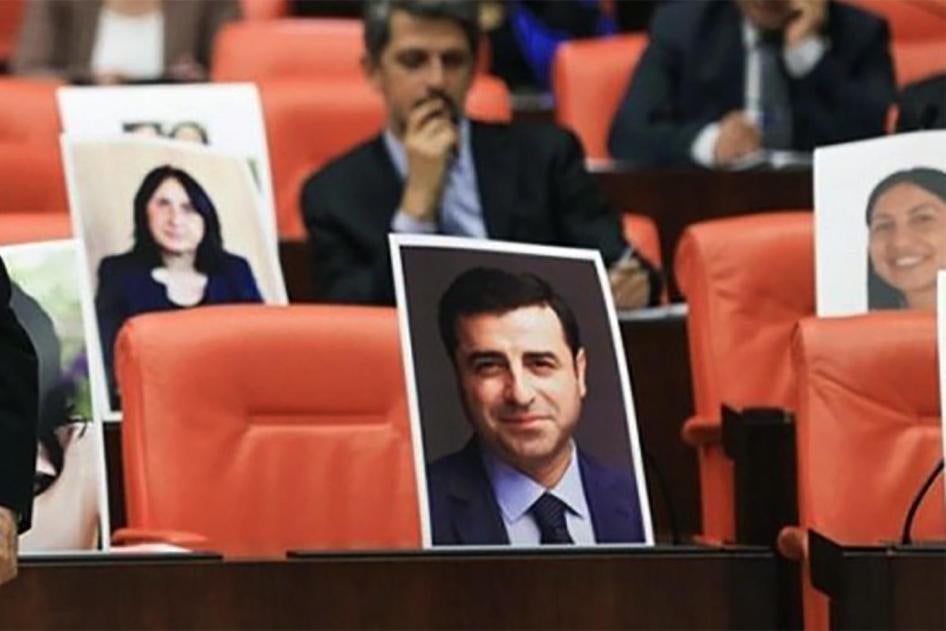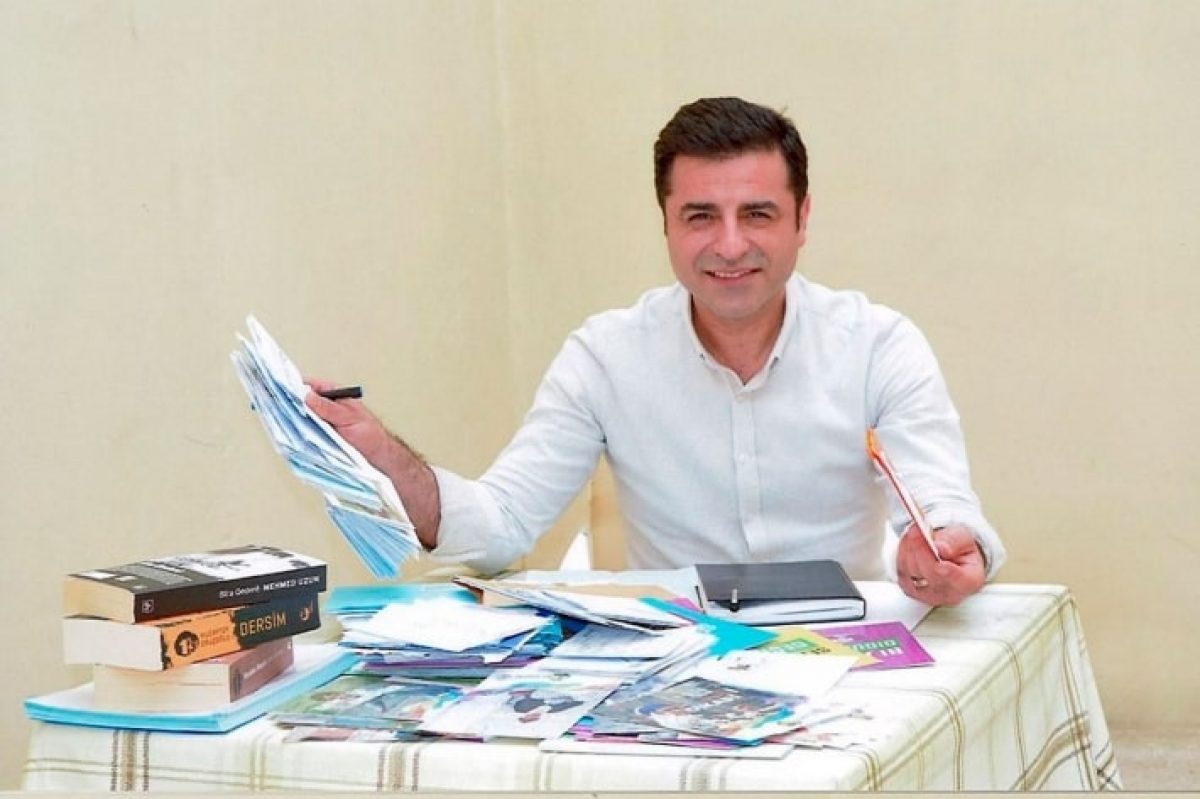One day in March 1998, when he was in the fourth grade of secondary school in Diyarbakir, outside the classroom, he heard protesters chanting slogans, and then the teacher explained that it was a Kurdish protest against the chemical attack on Halabja.
After the conversation between him and his teacher and receiving information about Saddam Hussein's regime and the chemical attack on Halabja, he discovered his Kurdish identity. Although he tried not to get involved in politics at the suggestion of his teacher, his love for music led him to turn to Kurdish music.

He admitted that he had been listening to Kurdish music secretly from his parents for many years.
After the 1991 assassination of the secretary general of the People's Labour Party (an official Kurdish party), he thought about entering politics for the first time.
When one of his brothers was arrested for his PKK membership, his family was unable to hire a lawyer due to their poor financial situation. Demirtaş decided to change his specialty from navy to law. In 1993, he went to Ankara University from Izmir University to study law.
In 1995, Demirtaş tried to leave university and join the PKK in Qandil. But due to the exposure of the party organization, he was arrested for 15 days and his plan was cancelled.

After 2000, he founded the Human Rights Association with Osman Baydemir and a group of lawyers and civil society activists. When Osman Baydemir was elected mayor of Diyarbakir in 2004, Demirtaş became the head of the assembly.
In 2006, he participated in a television program (Roj TV) and was tried on charges of propaganda for the PKK. He was initially sentenced to one year in prison, but the court later reviewed the sentence to five years. But his sentence was not carried out.
Demirtas ran as an independent candidate in the 2007 elections and went to the Turkish Parliament. In the same year, another 21 members of the Democratic Society Party (DTP) became members of the Turkish Parliament and for the first time in Turkish history, were able to form a Kurdish faction in the Turkish Parliament. Demirtaş was appointed as a deputy for the DTP faction in Parliament.
After the DTP was dissolved in 2009 by the Turkish state, they formed another party called the Peace and Democracy Party (BDP) as an alternative, and Demirtaş joined them.
In February 2010, the BDP held its congress and elected Demirtas as its deputy secretary general. Later, due to changes in the party's internal rules, Demirtas and Gültan Kışanak became co-chairperson of the party.
In 2011, he ran again as an independent candidate and was elected to parliament for the second time. In that year, the Front for Labour, Freedom and Democracy, supported by the BDP, would able to send 36 independent candidates to the Turkish parliament, but six of them were not allowed to enter parliament because of their accusations of links to the Kurdistan Communities Union (KCK).
In 2013, at the suggestion of Abdullah Ocalan, the People's Democratic Party (HDP) was established as a unified umbrella for all Kurdish parties and personalities. In the same year, after the municipal elections, the majority of BDP members joined the HDP in a model conference, and the HDP was recognized as a real Kurdistan-wide party.

Demirtas ran for the first in the presidential election in 2014 as a candidate of the People's Democratic Party (HDP) against Prime Minister Recep Tayyip Erdogan. Demirtas won 9.8 percent of the vote, giving hope to HDP officials that they could cross the 10-seat threshold. They then won 13 percent of the vote as a party and secured about 80 seats in parliament.
Demirtaş was imprisoned again in late 2016 on charges of links with and propaganda for the Kurdistan Communities Union (KCK), but he ran for president again in 2017 and campaigned from prison.
Last month, the Istanbul Supreme Court sentenced Demirtas to another three years and six months in prison on a complaint filed by President Recep Tayyip Erdogan.
Demirtas married Başak Demirtaş (a teacher) in 2002 and has two daughters, Dalal and Dilda.